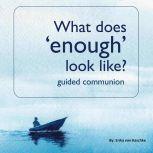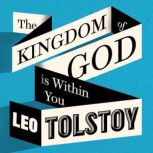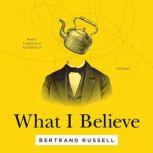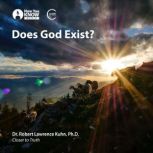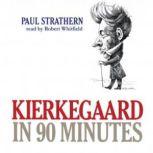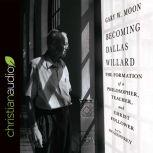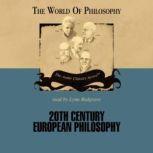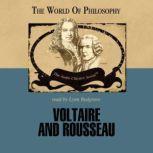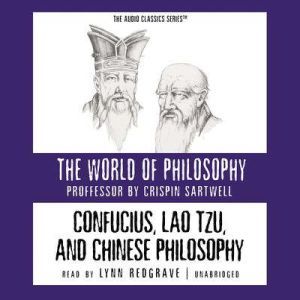
Details
Confucius, Lao Tzu, and the Chinese Philosophical Tradition
Author: Professor Crispin Sartwell
Series: The World of Philosophy Series
Narrator: Lynn Redgrave
Unabridged: 2 hr 40 min
Format: Digital Audiobook
Publisher: Blackstone Audiobooks
Published: 05/09/2006
Genre: Philosophy - Religious
Synopsis
The golden age of Chinese philosophy dates from the birth of Confucius (551 BC) until China was unified (and learning suppressed) in 221 BC. China's great Confucian philosophers were Confucius, Mengzi, and Xunzi. With a few exceptions, Confucianism has been the reigning paradigm for Chinese philosophy for over 2,000 years. Its central concepts are li (the proper ordering of society through rituals or ceremonies) and zhen (the proper ordering of the self through humaneness, benevolence, and love). Under such masters as Laozi (Lao Tzu) and Zhuangzi, Daoism (also known as Taoism) influenced Chinese thought with its doctrine of yinyang, which symbolizes the interdependence of opposites (such as male/female, good/evil, etc.). The Dao (Tao) which means "the Way", also involves emptiness, absence, spontaneous action, and forgetting (rather than the rituals, learning, and prescriptive moral and social activities that Confucianism emphasized). The Daoist rejects power and control, instead accepting and ecstatically affirming things as they are. Daoism is a doctrine of nonresistance, of "going with the flow" by being so deeply immersed in an activity that you become one with it. The Daoist concept of enlightenment also helped shape the Chinese philosophy known as Chan Buddhism, which rejects consciousness and selfawareness. The Chan Buddhist gives up on "figuring things out," instead emphasizing meditative exercises and devices such as koans. This philosophy is known in Korea as Son, and in Japan and the West as Zen Buddhism.
by Erika von Kaschke
In a world shaken up by COVID-19, our eyes have refocused on the things that matter most. Many have started searching for God, trying to piece together the puzzle of life and to find secure footing.There are many opinions to be found, but as you rea...
Published: 02/08/2021
by Leo Tolstoy
Banned in Russia, Tolstoy's The Kingdom of God Is Within You was deemed a threat to church and state. The culmination of a lifetime's thought, it espouses a commitment to Jesus's message of turning the other cheek. In a bold and original treatise, T...
Published: 10/13/2022
by Peter Walker
When we enter through the Gate of Jesus – by repentance and faith - we enter into his eternal kingdom. In that moment, we become citizens of heaven. Yes, we still find ourselves here on earth, but everything has changed. Earth is no longer our...
Published: 05/05/2022
by Bertrand Russell
Remarkably relevant, beautifully written, and filled with wit and wisdom, these three essays by Bertrand Russell allow the listener to test the concepts of the good life, morality, the existence of God, Christianity, and human nature. "What I Believ...
Published: 01/01/1995
by Robert L. Kuhn
Does God exist? How do you justify your belief or unbelief to others? A delicate matter, you rarely have the occasion to fully explore these questions in daily life. Now, this special series invites you to join some of the world’s leading thin...
Published: 03/22/2019
by Paul Strathern
Kierkegaard wasnt really a philosopher in the academic sense. Yet he produced what many people expect of philosophy. He didnt write about the world, he wrote about life, about how we live and how we choose to live. His subject was the individual and...
Published: 06/25/2005
by Gary W. Moon
Dallas Willard was a personal mentor and inspiration to hundreds of pastors, philosophers, and average churchgoers. His presence and ideas rippled through the lives of many prominent leaders and authors, such as John Ortberg, Richard Foster, James B...
Published: 03/27/2018
by Professor Ed Casey
Twentiethcentury European philosophy has grown out of two movements: existentialism (emphasizing the everyday turmoil of living) and phenomenology (seeking the essential, indispensable core of things grasped by pure consciousness). These movements h...
Published: 04/14/2006
by Professor Charles Sherover
Voltaire and Rousseau offered opposing viewpoints on the major intellectual movement of their time: the Enlightenment. Like most Enlightenment thinkers, Voltaire repudiated tradition and history, embracing reform based on individualism and intellect...
Published: 04/09/2006

